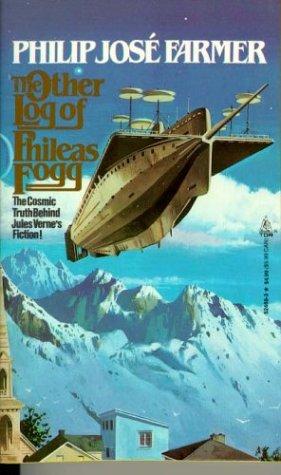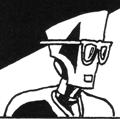dare reviewed The Other Log of Phileas Fogg by Philip José Farmer
Nice idea, shaky execution
2 stars
What if Phileas Fogg was an alien agent, waging a secret war across the globe? What if his bet on circumnavigating the globe in 80 days was just a cover story?
Philip Jose Farmer's Wold Newton idea is basically genre fanfic, "what if lots of early sci-fi / detective /pulp story heroes were linked together by an elaborate shared sci-fi origin". Tarzan, Sherlock Holmes, Doc Savage, Captain Nemo, Phileas Fogg all together in a great shared world! Sounds fun! But.
The actual book aims to be a documentary account written in 1972 by P.J. Farmer, based (and commenting) on a secret logbook kept by Phileas Fogg, yet stylistically it reads as a pastiche of Jules Verne. Familiarity with "Around the World in 80 Days" is expected, but this is only fair. The adventure story is mostly good, but some interludes feel weird and just tacked on. There is …
What if Phileas Fogg was an alien agent, waging a secret war across the globe? What if his bet on circumnavigating the globe in 80 days was just a cover story?
Philip Jose Farmer's Wold Newton idea is basically genre fanfic, "what if lots of early sci-fi / detective /pulp story heroes were linked together by an elaborate shared sci-fi origin". Tarzan, Sherlock Holmes, Doc Savage, Captain Nemo, Phileas Fogg all together in a great shared world! Sounds fun! But.
The actual book aims to be a documentary account written in 1972 by P.J. Farmer, based (and commenting) on a secret logbook kept by Phileas Fogg, yet stylistically it reads as a pastiche of Jules Verne. Familiarity with "Around the World in 80 Days" is expected, but this is only fair. The adventure story is mostly good, but some interludes feel weird and just tacked on. There is a stink of prequelitis here -- everything has to be explained, everything has to connect. I'm not totally against stuff like this (e.g. I adore Tim Powers' Declare -- even though it's based on real history, not on fiction), but Log feels just so indulgent that it had me rolling my eyes on multiple occasions.
Imitating Verne also means a lot of tropes that feel quite racist & sexist nowadays, and probably should have in 1972 as well. Maybe some of the worst prejudices of the era were left on the cutting room floor, but still enough survived to raise an eyebrow. There's commentary on the backwardness of 1870s English internal politics, but hardly a thought is given to anything not affecting white Europeans. There's an off-hand mention of an extremely violent sexual assault by brown people, which kind of sticks out. There's a weird whitewashing of a major Indian character into a European, and a lot of appendices are spent explaining the reasoning. But by that time the actual story was done, and I was past caring for excuses.
I am still kind of interested in the Wold Newton concept, even though on reflection it feels firmly rooted in colonialist tropes, European superiority, hereditarism and what have you. I don't know. Maybe I should read Tarzan Alive, because Tarzan's got super-colonialism baked in and if that's not commented on at all, I can just write off the whole thing.

